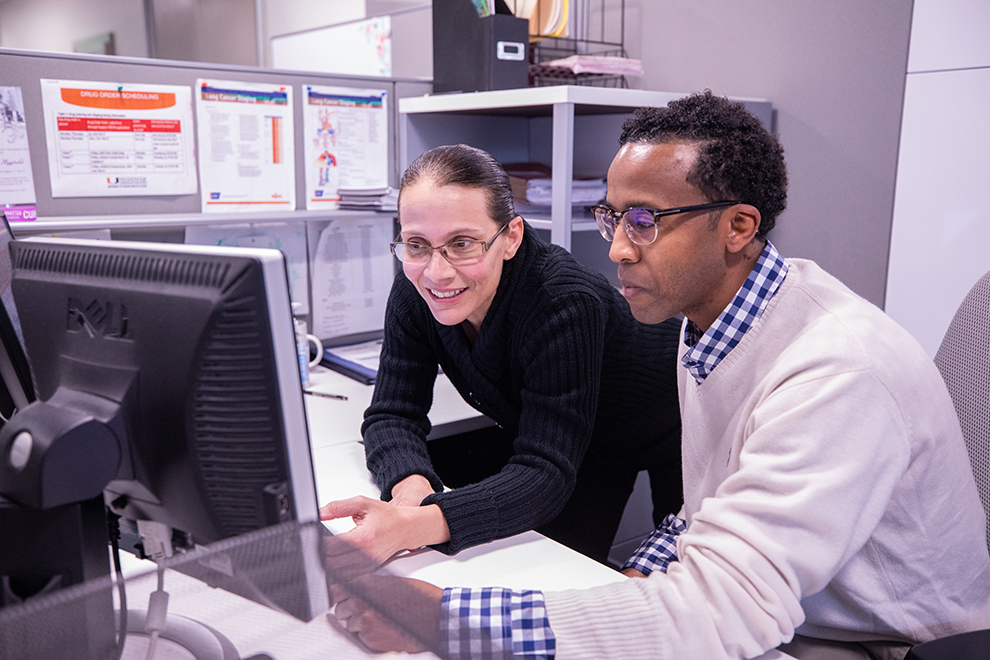A five-year training grant from the National Cancer Institute is supporting the development of the next generation of researchers focusing on cancer disparities, through a mentored post-doctoral fellowship.
Two researchers at Sylvester are the co-principal investigators: Frank Penedo, Ph.D., associate director for cancer survivorship and translational behavioral sciences, and Erin Kobetz, Ph.D., M.P.H., associate director for population sciences and cancer disparity.
They received the NCI T32 grant for a project titled “Cancer Training in Disparities and Equity (C-TIDE).” The total award for the five-year research project is $2.3 million.
“We are very pleased that the NCI recognizes the need to train the next generation of researchers in cancer prevention and control with an emphasis on better understanding and intervening on factors that promote cancer inequities,” said Dr. Penedo. “The unique and diverse composition of our South Florida community, and the expertise of our Sylvester faculty, provide an exceptional infrastructure to implement this transdisciplinary training program which spans from understanding how structural barriers such as SES and access to care impact timely diagnosis and treatment, to developing interventions that can improve quality of life and clinical outcomes primarily in communities disproportionately burdened by cancer.”

It is a two-year appointment for each fellow and there will be a total of 15 over the course of the grant. This post-doctoral fellowship integrates members from most disciplines and all research programs at Sylvester. There are 24 primary mentors with expertise in a variety of areas ranging from cancer epigenetics and tumor biology to community-based screening and survivorship interventions.
“C-TIDE provides trainees structured, didactic, and experiential training in disparities research and intervention,” said Dr. Kobetz who is also vice provost for research and scholarship at the University of Miami. “This kind of training is particularly important here—in the multicultural context of South Florida—and now, given the additional constraints that COVID-19 has imposed on vulnerable communities’ health and access to the formal health care system. We believe that C-TIDE trainees will be poised to ask important questions about the etiology of these disparities, and more importantly, to generate solutions to advance health equity.”